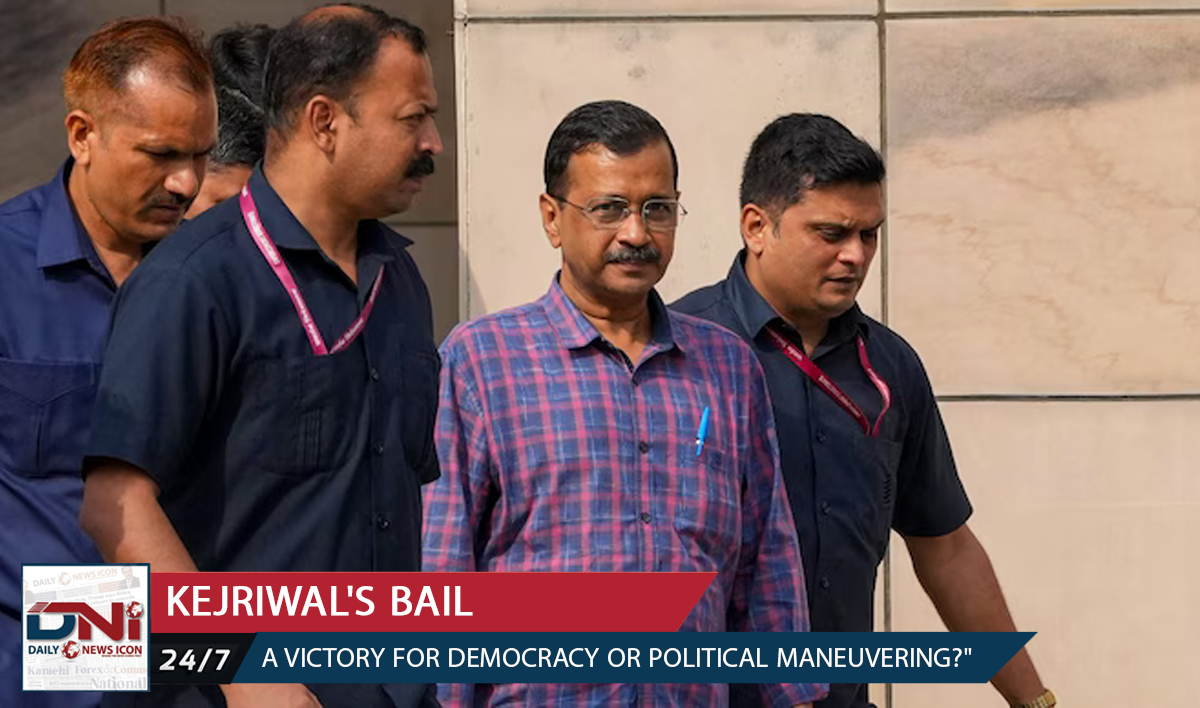
India’s Supreme Court, in a landmark decision, has ordered the release on bail of Arvind Kejriwal, a vocal opponent of Prime Minister Narendra Modi. This move enables Kejriwal, the Chief Minister of Delhi and a significant figure in the opposition camp, to actively participate in the ongoing national election.
Political Freedom Prevails: Kejriwal’s Bail
The Supreme Court’s ruling marks a significant victory for Kejriwal, who was detained in March amidst a prolonged investigation into allegations of corruption. His detention was widely criticized by his supporters and fellow opposition members, who decried it as a politically motivated act by the ruling Bharatiya Janata Party (BJP).
Legal Triumph: Supreme Court’s Verdict
Justices Sanjiv Khanna and Dipankar Datta, presiding over the case, have granted Kejriwal temporary relief by allowing his release until June 1, coinciding with the conclusion of the six-week-long election period. This decision underscores the judiciary’s commitment to upholding individual liberties, even in the face of political turbulence.
The Allegations: Unraveling the Corruption Probe
Kejriwal’s involvement in a corruption scandal related to the liberalization of liquor sales in 2021 has been a focal point of the investigation. While his government retracted the contentious policy the following year, the subsequent inquiry into alleged irregularities in licensing procedures led to the incarceration of two of Kejriwal’s close associates.
Public Support: Rallying Behind Kejriwal
Across major cities in India, fervent demonstrations in support of Kejriwal have echoed concerns over what many perceive as a targeted attack on political dissent. Despite steadfast assertions of innocence from Kejriwal, the specter of political persecution looms large over his continued involvement in public life.
Upholding Democratic Values: Challenges and Concerns
The plight of Kejriwal and other opposition figures underscores broader apprehensions regarding the erosion of democratic norms in India. International observers, including prominent rights organizations, have voiced apprehensions regarding the BJP’s alleged misuse of state institutions to suppress dissent and stifle political opposition.
The Larger Context: Modi’s Dominance and Opposition Dynamics
While Kejriwal’s release on bail provides a temporary respite, the overarching political landscape remains largely unchanged. Narendra Modi’s enduring popularity, bolstered by his nationalist agenda, continues to overshadow the prospects of the opposition alliance. Despite concerted efforts by Kejriwal, Rahul Gandhi, and other opposition stalwarts, the road to electoral success appears steep against the backdrop of Modi’s unwavering support base.
In conclusion, the Supreme Court’s decision to grant bail to Arvind Kejriwal underscores the judiciary’s pivotal role in safeguarding individual freedoms in the face of political adversity. However, the broader implications of this ruling extend far beyond Kejriwal’s immediate legal battles, encapsulating the ongoing struggle to preserve democratic values in India’s vibrant yet contentious political landscape.
